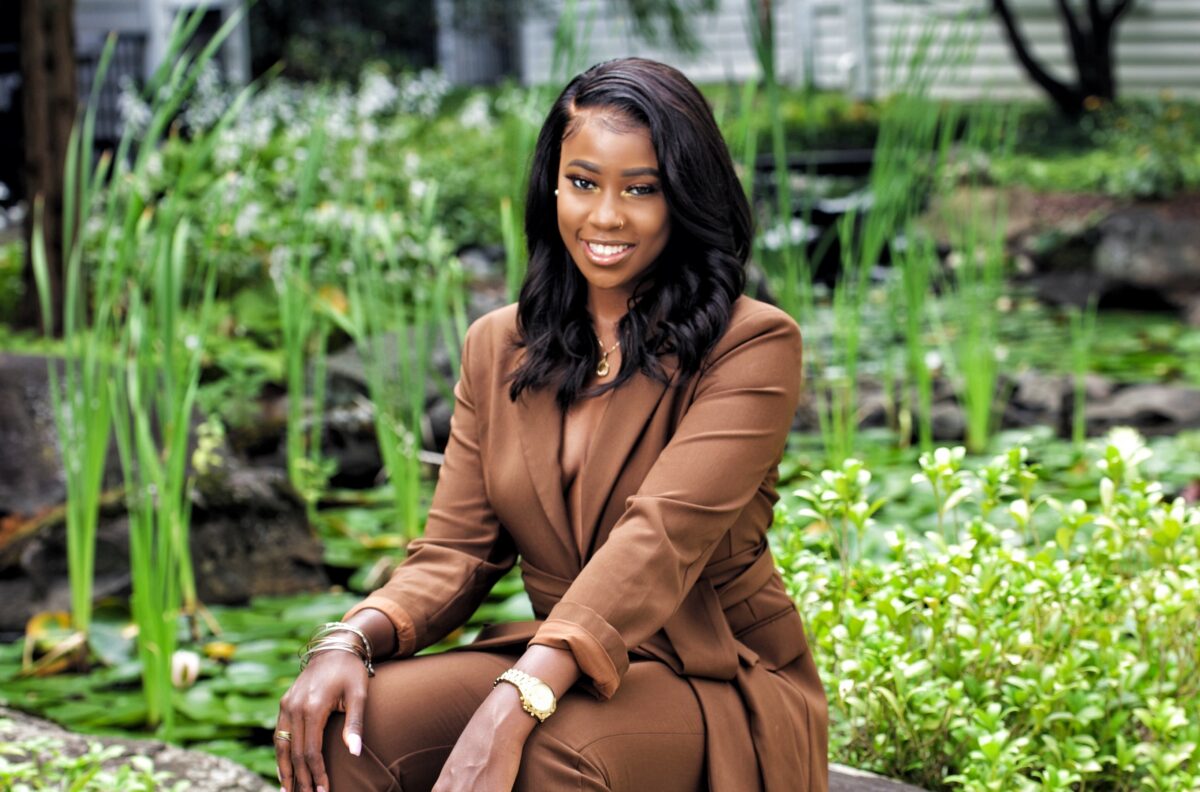
In recent years, the conversation around mental health has become more open in this country, especially among younger generations who are loudly challenging long-held stigmas. But for first-generation Americans, this shift can be difficult to navigate. Straddling two cultures often means balancing the expectations of immigrant parents with the realities of growing up in a different culture.
We talked with Dr. Chiamaka Nnah of Catonsville’s Serenity Wellness and Mental Health about her experience as a first-generation American and why it’s so important to her to connect with her community about mental health.
Tell me a bit about your background.
My parents immigrated from Nigeria so I’m a first-generation American. I grew up in Baltimore County and attended the Western School of Technology where I graduated in 2017. I then went on to the University of Maryland Eastern Shore to receive my bachelor’s in biology. After I graduated, I really wasn’t sure what I wanted to do, but typically in Nigerian culture there is an expectation that you’re going to be a lawyer, a doctor, or an engineer and nothing else is really seen as acceptable, so in a way I was kind of forced to limit my options. So I continued my education at the University of Maryland, where I did their accelerated nursing program and got my masters.
Why did you choose to dedicate your career to mental wellness?
When I first started nursing, I was working in the ER at Sinai hospital and I really didn’t like it, but I realized where I shined. I found enjoyment in talking to patients and building a rapport with them. I knew then I wanted to focus more on the social and psychological side of medicine. My mom, who is also a nurse, was interested in going back to school, so we decided to do the psychiatric program together at Walden University. We both got our licenses and passed our boards, and my mom ended up opening her own mental health practice where I worked with her.
But after a while, I started to notice the differences in our approach and our clients. I really wanted to work more with younger clients and people who had similar life experience to myself. So in 2024, I opened my own practice called Serenity Wellness Mental Health Center. I started seeing patients and advertising myself and it grew very quickly. It’s been a year and I now have ten employees and more than 300 patients.
What sets Serenity Wellness apart?
Aside from the services we offer, our focus is really on giving back and being accessible to our community. I think people are becoming more open to talking about mental health, especially younger people, and I think it helps to have someone closer to their age with a similar background. It makes it easier to connect and really allow people to open up. As a first-generation American, I also really wanted to offer representation for others who have that same experience of being first generation. We have a range of different providers of different races and ethnic backgrounds, so that there is someone on staff that can relate or appeal to our specific community demographics.
Is there a stigma around getting help for mental illness in certain communities and ethnicities?
Yeah, for sure, there is a big stigma. A lot of first-generation homes are very religious, and in these communities they may believe most things can be solved with prayer. They don’t really believe in depression, because they figure you have a family, water, food, and a place to sleep. Some of the older generation don’t really get the psychological aspect of being depressed. Someone who is depressed could be smiling and laughing, but also dealing with a physical response where there are actual chemical imbalances in your brain leading to depression.
There is also a lot of pressure put on immigrants and first-generation families to succeed, which can play a part in their mental health. Education can be heavily encouraged, and sometimes that works for kids, and sometimes it doesn’t—and when it doesn’t, it can be really hard on a kid to understand where they fit.
On top of that, they are also dealing with some societal pressures of what is considered “normal.” There are certain practices or cultural standards that are completely normal at home, but then seen as strange or different when they go out into the world. There is a big culture clash to deal with and try to understand, which is also going to affect your mental health and how you view yourself.
What has been the most positive change you’ve seen in your community through your work?
The best part for me is creating a space for people like me to feel comfortable to discuss their mental health and to reduce the stigma in the community that I live in. I think being able to have open conversations and have the relatability to the clients that we have really helps therapy feel approachable and inviting—I’m very proud of that. The hardest part is making that first appointment because it’s unfamiliar and scary to be vulnerable, but I really hope I can offer an accessible entry point by letting people know if this Nigerian girl from Baltimore can do it, so can you.
